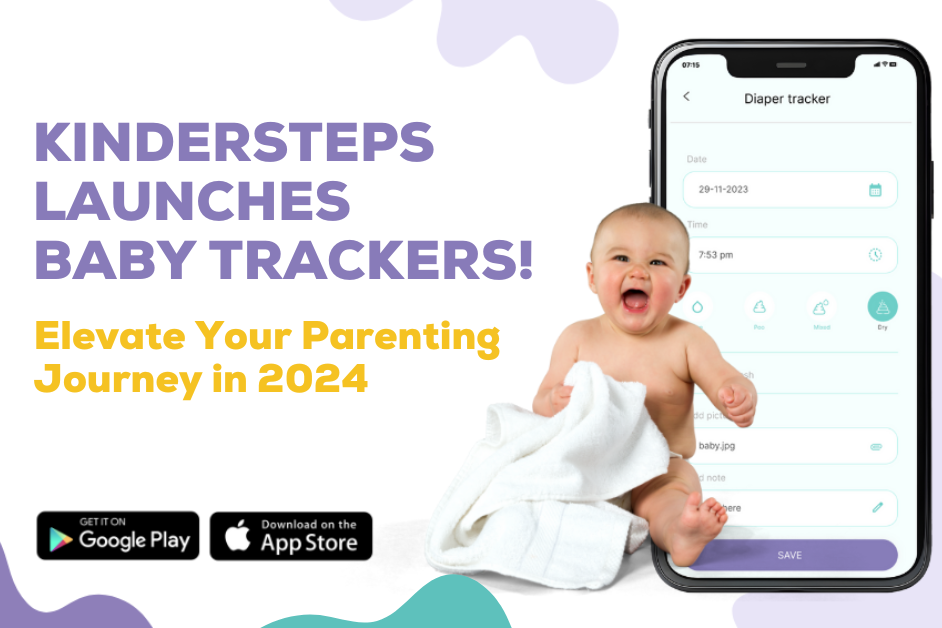Did you know that a child should already possess some basic early literacy skills before entering kindergarten? That's right! Even before formal education begins, children need to have a strong foundation in reading and writing. Early literacy skills are crucial because research shows that children who develop these skills early on are more likely to succeed academically later in life. They have better language skills, higher levels of comprehension, and are more confident in their abilities as readers and writers.
Whether you are a parent, caregiver, or educator, this article can help guide you on the importance and how you can support your child in early literacy.
What is early literacy
Did you know that even when you respond to your baby's babbling, you are already teaching them communication and language skills? As a parent, you have the power to lay the foundation for your child's reading success from a very young age.
Early literacy is a crucial set of abilities and knowledge that help children learn to read. It encompasses both language and writing skills, as well as an understanding of the process and purpose of writing. Early literacy also involves developing listening comprehension, an awareness of print, and phonological awareness. By nurturing these skills in your child, you can set them up for a lifetime of reading success. Engage with your child, read to them, and encourage their curiosity about language and writing. With your help, they can become confident and capable readers.
The 7 early literacy skills
1. Vocabulary development
Vocabulary development is a crucial aspect of early literacy skills. It involves learning and using new words, which lays the foundation for better reading comprehension and communication skills. As a parent, you play a vital role in helping your child build their vocabulary. Here are some tips to get you started
- Read aloud
Reading aloud to your child is one of the best ways to introduce new words and help them develop their vocabulary. As you read, be sure to pause and explain any unfamiliar words. This will not only help them understand the story better but also expand their vocabulary.
- Use descriptive language
When you talk to your child, try to use descriptive language to help them learn new words. Instead of saying "that's a pretty flower," say "that's a beautiful, colorful, fragrant flower." This will help them understand the nuances of language and develop a more extensive vocabulary.
- Play word games
Word games are a fun way to build vocabulary skills. Games like Scrabble, Boggle, and Hangman can help your child learn new words while having fun. You can also make up your own games, like I Spy or Name that Object, to keep things interesting.
- Introduce new experiences
Taking your child to new places and introducing them to new experiences can also help build their vocabulary. Whether it's a trip to the zoo, a visit to a museum, or a walk in the park, there are always new things to learn and new words to discover. Encourage your child to ask questions and explore their surroundings.
By incorporating these tips into your daily routine, you can help your child develop a rich and varied vocabulary that will serve them well for years to come. Remember, building vocabulary is a lifelong process, and every little bit helps. So, keep reading, playing, and exploring with your child, and watch their vocabulary grow!
2.Phonemic awareness
Phonemic awareness is a fundamental skill that enables children to hear and recognize individual sounds in words. It is a crucial early literacy skill that lays the foundation for reading and spelling proficiency. When children have a strong grasp of phonemic awareness, they are better equipped to decode words and read with fluency and accuracy. It also helps them to understand how words are constructed, which is essential for spelling and writing.
As a parent, you can help your child develop phonemic awareness skills in fun and engaging ways such as;
- Singing songs and nursery rhymes
This is an excellent way to introduce children to the sounds of language. Encourage your child to sing along and clap out the syllables in each word.
- Playing rhyming games
This is another great way to help children learn to identify the sounds in words. You can start by saying a word and asking your child to come up with a word that rhymes with it.
- Listening to audiobooks
This can also help children develop phonemic awareness. As they listen, encourage your child to identify the individual sounds in words and repeat them back to you.
By incorporating these activities into your daily routine, you can help your child develop strong phonemic awareness skills that will serve them well as they learn to read and write. With your support, your child can become a confident and proficient reader and writer.
3.Print motivation
Print motivation is the term used to describe a child's interest in and enthusiasm for books and reading. When children have a positive attitude towards reading, they are more likely to become avid readers and develop strong literacy skills.
But why is print motivation so important? Well, children who enjoy reading are more likely to read frequently, which leads to improved reading comprehension and vocabulary development. Additionally, reading is a fun way to explore new worlds, learn new things, and stimulate the imagination!
So, how can parents foster print motivation in their children? Here are a few ideas:
- Establish a reading routine
Set aside a regular time each day for reading together as a family. This could be before bedtime, during breakfast, or whenever works best for your schedule.
- Visit the library
Take your child to the library and let them explore the shelves. Encourage them to choose books that interest them and let them check out as many as they like.
- Allow your child to choose what to read
Give your child the freedom to choose what they want to read. Whether it's a comic book, a graphic novel, or a chapter book, the most important thing is that they're excited about it.
- Make it enjoyable
Reading doesn't have to be a chore. Make it fun by doing silly voices, acting out parts of the story, or playing games related to the book.
By nurturing print motivation in your child, you can help them develop a lifelong love of reading and set them up for future success in school and beyond. So, take the time to encourage your child's interest in reading and watch as they grow into confident and capable readers.
4.Print awareness
Print awareness is a fundamental early literacy skill that forms the basis for reading and writing. It involves understanding the basic features of print, such as letters, words, and sentences, and the ability to use them to convey meaning.
Fortunately, there are many enjoyable and interactive activities that parents can do with their children to develop print awareness.
- Point out letters and words in the environment
While taking a stroll or driving in the car, parents can point out letters and words in the environment, such as on signs, billboards, and license plates.
- Create a letter collage
Additionally, parents can create a letter collage with their child, using cut-out letters from magazines and newspapers to form words and phrases.
- Magnetic letters
Playing with magnetic letters on the refrigerator is another excellent way to help children recognize letters and experiment with spelling.
By engaging in these activities, parents can help their children develop a strong foundation in print awareness, which will serve them well as they progress in their literacy journey
5. Narrative skills
Narrative skills are a crucial aspect of a child's development, as they enable them to comprehend and communicate stories effectively. These skills are not only essential for literacy development but also for building social and emotional intelligence.
Here are some fun activities to do;
- Ask your child to narrate a story
To help your child develop their narrative skills, you can encourage them to retell stories they hear or read, or even create their own. You can even get silly and make up ridiculous stories together! For instance, imagine a dragon and a unicorn opening a bakery together, but they can't agree on what kind of cupcakes to make.
- Engage in conversations about a recent book you read to your child
Asking questions about books is another excellent way to develop narrative skills. You can ask your child questions like "What was your favorite part?" or "What do you think will happen next?" This not only helps them understand the story better but also encourages them to think critically and creatively.
So let your imagination run wild and have fun with storytelling!
6.Letter knowledge
It's time to talk about letter knowledge. Letter knowledge is knowing your A's from your Z's and everything in between. It's a crucial part of early literacy because it's the foundation for reading and writing.
So, how can parents help their little ones get to know their letters?
- Sing the alphabet song
You could start by singing the alphabet song. It's a classic for a reason!
- Play letter matching
Fun letter matching games, like "I Spy" or "Letter Bingo" are an excellent choice.
- Arts and crafts
And if they're feeling really crafty, they could make letter crafts using materials like pipe cleaners or stickers. Who knew learning the alphabet could be so entertaining
7.Phonics
It's not just for kids learning to spell "cat" anymore! But what exactly is phonics and how is it different from phonemic awareness? Well, phonics is all about the relationship between letters and sounds. Basically, it's teaching your kid that when they see the letter "B", they make the "buh" sound. Now, how can you help your little one master phonics?
- Word family charts
You can start by using word family charts, like "-at" or "-og", and encouraging them to sound out the words.
- Letter sound games
You can also play fun letter-sound games, like "I Spy" or "Name That Sound".
- Decodable books
Don't forget about reading decodable books, which are specifically designed to help kids practice their phonics skills. Trust me, your little one will be reading like a pro in no time!
Early literacy skills are crucial for children to develop before entering formal education. These seven key skills lay the foundation for future success. Join thousands of parents and caregivers worldwide by giving your child a head start with Kindersteps, a free app that helps you cater to your childs literacy, cognitive, gross motor skills and more. Download our parenting app on iOS & Android today.






.jpg?alt=media&token=166b64a9-274c-400c-95e4-baf0013e7e43)
